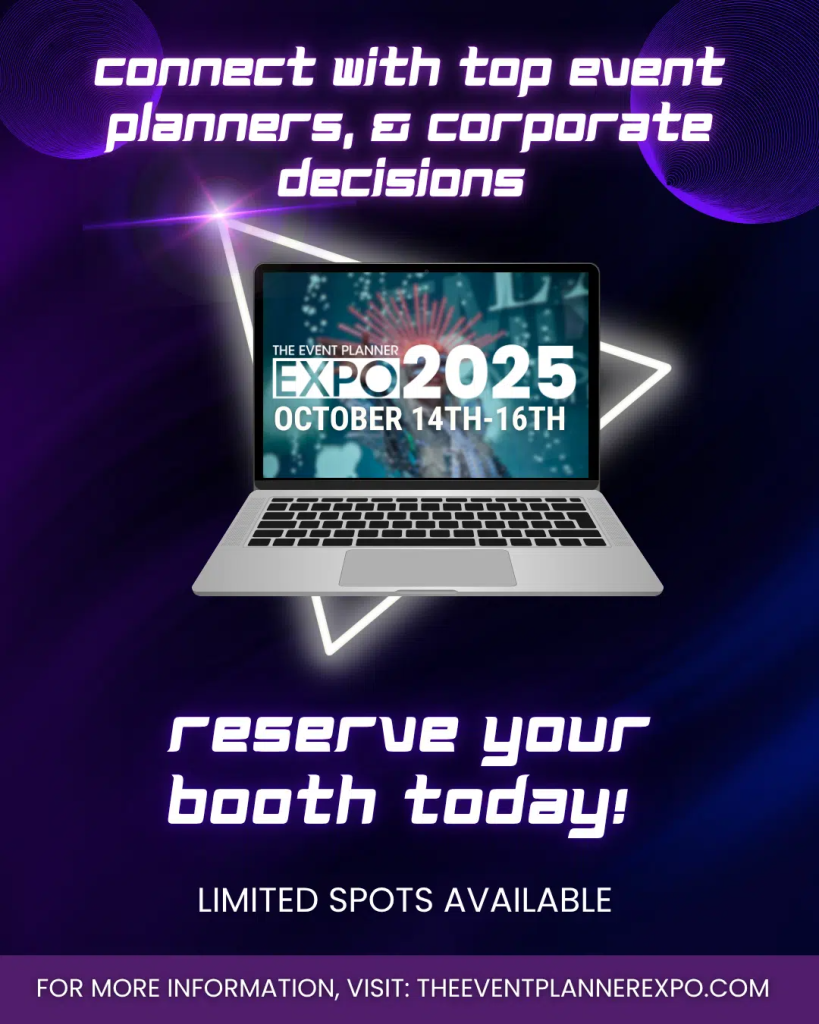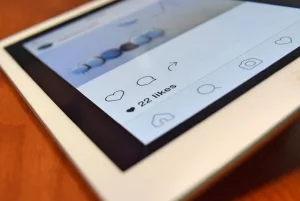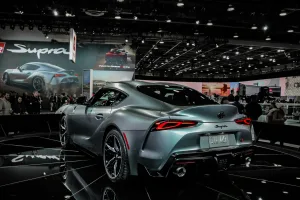In a hyper-connected world largely shaped and driven by social media, it’s no surprise that event planners turn to social media platforms to engage potential event attendees. However, if you wish to stand out from run-of-the-miller event businesses, you will need foolproof social media marketing strategies to promote your events in NY.
According to Statista, 30% of marketers being surveyed said that social media was often highly useful and effective in attracting new event attendees. And 60% said that it was somewhat effective. If you want to create an impactful marketing campaign, use the right social media marketing strategies to promote your event to your target audience and generate the required buzz to hit your targets.
Let’s delve into why you need social media marketing and the strategies you can use to elevate your event’s success!
Why Is Social Media Marketing Essential to Event Success?
Whether you are throwing a virtual, in-person, or hybrid event, you need strategies to help your event get noticed and sell tickets. Almost all event planners turn to social media because potential attendees expect to get updates about events through social media. They rely on businesses to use these platforms to keep in touch with their audiences and keep them up-to-date.
Social media platforms’ different features and quirks, such as live videos, reels, stories, announcements, carousel posts, polls, etc., enable them to be highly interactive. This inherent quality helps potential event attendees engage with you and ask relevant questions that might pique their interest in the event.
Social media marketing for events also enables you to connect with your audience through genuine content. It helps you appeal to the people who already follow you and gain the attention of new prospective attendees who might be interested in your event. Moreover, you can always leverage the algorithm and your target audience’s interest to go viral.
That said, all social media campaigns demand time, heaps of creativity, and the right strategies to create evident results. So, you need to ask yourself how and where you want to start your event marketing efforts on social media, the kind of marketing you want to spend time and money on, and the type of content that will resonate with your target audience.
Define Your Broader Social Media Marketing Strategy
Social media marketing for events doesn’t start with creating a schedule or posting content randomly. It starts with crafting a holistic action plan involving in-depth market and target audience research to understand the emotional crux of their requirements and expectations. It demands that you come up with specific event goals and then carve your target audience personas to achieve those goals.
Then, you need to determine the best approach and platform to reach them, the type of influencers they follow and trust, and the content format they will appreciate. Knowing these will help you have a broader strategy that you can follow to market your event on social media.
10 Social Media Marketing Strategies for Event Planners
You can use various social media marketing tactics and strategies to promote your event. Your aim should be to generate event buzz and build lasting excitement leading up to the day of the event. You must also use social media to keep event engagement at an all-time high during and after the event.
Let’s look at ten social media marketing strategies that will work when promoting events in NY:

1. Leverage the Sway of Influencer Marketing
Influencers are industry experts and leaders who enjoy a great degree of influence or sway over target audiences in their niches. They are popular social media personalities with a thriving community of followers who turn to them for guidance, recommendations, and advice. These followers essentially put their trust in influencers.
An influencer marketing report suggests that 28% of marketing professionals work with influencers to promote their events. Partnering with the influencers in your industry for event promotion will help you reach more people. You can also involve them in your event and collaborate with them to become keynote speakers or presenters. Alternatively, you can invite them to the event as attendees so you can get the social media coverage you need preceding and on the day of the event.
Here’s how you can successfully use influencer marketing to promote your event:
- Research the influencers in your industry who have cultivated high engagement with their audience. It’s best to go for creators and influencers who are able to connect with their audience regardless of how small the number of followers is rather than chase after someone with a massive following but lower engagement.
- Create a list of 10-25 influencers, depending on the scale of your event and your distinct goals.
- Ensure the influencers you have chosen have audiences similar to your target audience.
- They must also share your brand values and have the ability to create compelling, relevant, and authentic content.
- Start at the bottom of the barrel and work your way up to get to the influencer who is the hardest to reach.
- Ensure you have an appropriate and exciting pitch with clear expectations for each influencer, and throw in what you love about their content, highlighting a specific post, story, reel, etc.
- Set specific goals for each influencer so that it’s easier for you to track their success and calculate the ROI of your campaign.
- Trust the influencers and give the influencers creative liberty to engage with their audience and collaborate with them instead of forcing them to stick with your pitch. It’s a collaborative process requiring you to trust the influencer’s knowledge of their audience.
2. Find the Right Social Media Marketing Tools
Event marketing on social media can be challenging and tiresome, especially if you choose to market your event on more than one platform. So, how do you eliminate its tediousness and welcome productivity into the fold? Employ various reliable tools to market your event and streamline your processes to track event participation, engagement, and metrics.
For instance, you can use scheduling tools to schedule, post, and comment on your content across all platforms. Tools like Sprout Social, Hootsuite, etc., enable you to keep an eye on all your campaigns under one roof, streamlining your tasks and increasing your efficiency.
You can also look for other reliable and efficient tools to track other success metrics and gauge your event attendees’ experience. For instance, you can use survey platforms or even social media to create polls that your attendees can engage in so that you have a better understanding of what made your event successful and the hindrances you encountered.

3. Pique Interest With Teaser Content
Think of the stories, sneak peeks, reels, and videos brands post on social media before a big product launch. Apply that practice to promote your events in NY and generate excitement around them. For instance, you can put up a story on Instagram highlighting a previously similar event and tease something new that you will reveal soon.
You can also go live on social media, engage with your audience, and answer your questions. Similarly, you can post story polls and the Ask-Me-Anything feature to make your audiences guess the type of news you have to share. Moreover, you can promote the event by starting a trending reel that teases the event with a specific tune, dance move, dialogue, or any other creative element.
Be crafty about the type of teasers you post before putting up the event tickets on sale. Your posts should align with the nature of the event and the goal you hope to achieve. Once you have made the tickets go live, post teasers of the experiences and talks you have arranged for the event. Let your target audience sniff and taste what awaits them at the event, encouraging them to buy a ticket and see for themselves.
4. Use Creative Hashtags with Social Media Marketing
Hashtags are crucial to any social media campaign, yet many businesses don’t use them properly. Whether you are teasing an event, sharing its highlights, or promoting its activities, you need hashtags to reach your target audience. However, you also need to be mindful that you don’t go overboard when using hashtags. Otherwise, your post will look spammy and overtly promotional, which can be off-putting for most people.
That said, a memorable hashtag is #crucial! You need to come up with a creative hashtag you can use across platforms and posts. It needs to be a consistent part of social media marketing for events. The hashtag you use can be the name of your event. You can also include another hashtag that is more creative and catchy and conveys the event’s tone.
Once you have created your hashtags, ensure the influencers you work with use them when prompting your event. You must also use them in your stories, reels, and posts. You can also encourage your audience to use them when they post content related to the event. Ensure the hashtag has a life of its own outside of social media by using it on your event website, email invites, tickets, sponsors’ content, and more.

5. Look into Paid Social Promotions
A significant aspect of social media marketing is to use paid posts and content for your events. Advertising will enable you to create tailored paid campaigns and target people who might be interested in attending your event. Since social media ads can bypass the algorithms, you can ensure your target audience sees your ad and knows about your event.
Consider remarketing and retargeting ads to manage your campaign and increase conversions efficiently. Remarketing campaigns target individuals who have previously interacted with your profile or page, hinting at their interest in you. Retargeting ads show your content to people who have previously interacted with your website or social profiles.
Create well-tested tailored ads to attract the attention of people who forgot to sign up for your event or showed interest and then backed out. You can target them with new discounts or offers, encouraging them to register. Use early-bird offers, event swags, video highlights, notable speakers, event activities, etc., to entice these people.
6. Use Announcements, Reminders & Deadlines Smartly
Make smart use of reminders, announcements, and deadlines in your social media campaigns. Use your main account and collaborate with creators to make significant announcements, such as the event tickets going live or sharing the event date, time, and venue.
Don’t forget to remind people to book the tickets and send gentle deadline reminders. However, be mindful not to barrage them with salesy messages so that they don’t tune you out. Package these announcements and reminders in content that will pique their interest and excite them. Use the announcements to introduce keynote speakers, registration deadlines, etc. Post information that will fan people’s fear of missing out (FOMO).

7. Go Live and Share Content Before & During the Event
When working with celebrities, famous creators, and influencers, collaborate with them to go live and discuss the event with their audience. If your event includes an act or a session by someone famous, loved, or admired, see if they can do a live session with their followers or go on a live session with you to discuss the event. They can also post a small video promoting the event and letting people know they can’t wait to interact with them. These posts, stories, and videos go a long way in building excitement.
Similarly, you can use live streams and stories on the day of the event to post behind-the-scenes happenings and capture the excitement of the event participants and attendees. Quote the notable speakers and event share bits from the planned event activities. Tag the attendees, speakers, and participants in your videos, stories, and images.
8. Organize Contests & Giveaways
Launch a giveaway before and during the event for better exposure and engagement on social media and at the event. Giveaways prompt people to follow you, talk about the event, and share your stories and posts. They always result in more organic promotion and enable more people to learn about and show their interest in the event.
You can also create specific contests for the event attendees and encourage them to participate in them to win a sponsored trip or gift bags. It will help you promote your business and your event’s success on social media without much effort.
9. Look for Authentic Testimonials
Use post-event surveys and polls on social media to get authentic event testimonials from the attendees. You can also encourage people to use your hashtags to post their reviews for more post-event engagement and business promotion. Put up posts with the event highlights and ask your audience about their favorite part of the event.
Tweets, Instagram stories and posts, TikTok reels, and Facebook posts and lives are all great sources for generating these testimonials. You can share the tagged content to highlight the success of your event. Moreover, you can use these online testimonials in your advertising for other related events. If the event is an annual affair, you can create stories and reels based on the feedback for better engagement and promotion.

10. Repurpose Your Social Media Marketing Content
Lastly, you must have so any social media posts, videos, graphics, etc., from all the events you have organized over the years. You cannot just let them sit in your archives for all eternity. Instead, think of smart ways to use that content. Repackage and repurpose it for new events so that you don’t have to start from scratch again.
For instance, you can create an on-demand special for your event for people who missed being there in person. These can be individuals who bought the ticket and couldn’t make it to the venue for some reason. Alternatively, you can sell this version through your social media profile to everyone who might be interested in watching it. You can also post it for free.
Similarly, you can put up smaller videos of your event and use them all year for promotional purposes. If you organize an educational event, you can use its sessions to create a course with your client and share the profits. If your event includes a popular session, you can repurpose its content into a blog post for your website or a podcast and promote it on your social media platform.
The Bottom Line About Social Media Marketing
Promoting events in NY requires the right promotional content and the event planner’s sheer creativity and digital marketing acumen. If you are thinking of using social media marketing strategies to promote your event, ensure these strategies align with your event and objectives.
The aforementioned strategies will certainly help you create the right buzz for your event across social media platforms. Whether you choose paid posts, organic content on your own feed, influencer marketing for events in NY, or a combination of different strategies, maintain your authenticity as it will help your audience connect with you.
If you want to discover more social media marketing strategies for event promotion, join the finest event planners and business executives at The Event Planner Expo 2023 from October 10-12 in New York City. Experience the wisdom of industry experts and successful business owners in various well-crafted speaker sessions.





